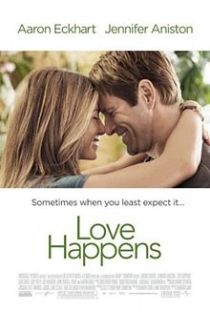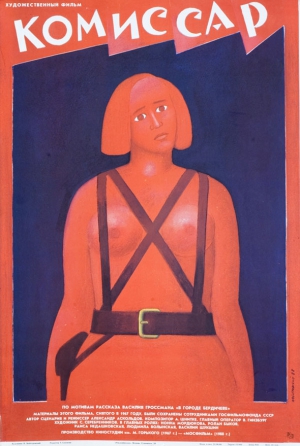My journey to Slovakia began in Manchester at 9pm. It was my former housemate’s wedding, my friends from university had gathered to meet for the weekend. I took a extremely long coach journey to Stanstead airport near my home town of London. After a sleepless night and sweaty plane journey, I made a Czech friend who helped me to buy a bus ticket and get on the bus. She was also destined for the same train station in Bratislava.
I had taught myself Slovak for the past two weeks, listened to radio and news clips. I had a background in Russian (studying it for four years at university) which helped me to grapple with Slovak grammar. I wasn’t afraid of a linguistic challenge.
After buying my train ticket and waiting for (what felt like an eternity) for my train to arrive, I boarded and settled and headed off. I was struck by the Slovakian’s friendliness. I was a mute foreigner, and yet people took to me kindly, not gawking like I was a goldfish in a small bowl or a fish out of water. I was treated with curiosity and still am; one woman remarked ‘From London? We go to London and London comes here? Why?’.
Truth be told, I wanted to leave Britain and its dismal economic crisis and to experience a new culture and way of life. My boyfriend insisted that I was running away. I don’t disagree but I also don’t regret it. Slovak’s have treated me very well, patiently listening to my broken, poorly pronounced pigeon Slovak and have smiled. I don’t glorify their actions, one man said it wasn’t innate goodness but the curiosity and challenge of being confronted by a young tourist in an un-obvious place.
The first few weeks living in a foreign country as typically known as the ‘Honeymoon period’, I wanted to be level headed but enjoy the joviality. I had nine new companions from across the UK to befriend and in between language classes and new escapades (such as slicing my little finger, getting lost in Valča and bruising my legs due to ice and inadequate footwear) the first two weeks were not a genuinely Slovakian experience but extremely enjoyable. Three of us moved to Žilina. Žili (veins) suggest its importance as transportation hub and ironically on my second day here I spent two hours finding my way back home after getting lost on the buses. This was adequate time to see the town.
Slovakia’s background is incredibly interesting. Once a part of the Austro-Hungarian empire and formerly a part of Czechoslovakia Slovakia’s independence has made it a relatively unknown country. It is in the shadows and between the borders of desirable tourist destinations; Austria, Poland, Hungary and Ukraine. An English bank clerk struggled to pronounce it as she asked me ‘Is that in Europe?’. I decided to come to Slovakia because I knew nothing about it. My opinions would not be tainted by GCSE text books about communist life or Ryan Air’s cheap fares promoting it as the new Prague for stag dos.
There were several things that struck me. Firstly, I had never encountered the Roma before and the extremities of wealth and poverty in such close proximity. Most residential streets are laden with grand and privately built houses. They have hints of Scandinavian and Germanic influences and come in a variety of size, shape and colour. Slovaks are fortunate that many can build their own homes, a financial impossibility for most Britons. But in between two Slovakian mini palaces it is common to find a dilapidated ‘shanti town’ Roma House. Domestic rubbish, food containers, broken toys sit in piles or are strewn across the parameters of the Roma homes. The Roma are evidently poorer than the average Slovak. Their homes are like ghettos and the people are like refuges. They are seen as something to fear and dislike.
It is natural for any fringe group to act in reaction to how society treats them. My experience has been very limited. Most Roma I have seen have been groups of families sitting outside during the day and their children contently playing in the dirt. One group of boys fashioned a ping pong table outside their windowless home. I have not been accosted nor begged at by any of the Roma. Of course I cannot say that it doesn’t happen. All I can impart is the ‘’Roma Question’’ is something for concern and after a visit to Auschwitz (let us not forget the ‘’Jewish Question’’ to Nazi Germany and Tsarist Russia) the Roma are still an object for mistrust.
Train stations are a public domain for all social strata; the homeless, the Roma, commuting Slovaks, manual laborers, tourists, school children. Solice can be found in attached pubs, cafes or restaurants, which are little pieces of paradise away from swathes of dispossesed if you have a spare euro for a Kofola (popular slovak soft drink) or velké pivo (large beer). Train stations are not my favourite of places, this could be associated with the natural stresses of travelling and uneasiness of not being in my native land, but I find them depressing and panic me slightly.
I enjoy buses and taking trains. They are comfortable and give an insight into local culture (for example it is common for train compartments to fill up with travellers of the same sex). They are fantastic modes for seeing Slovak nature. The north is famously adorned by picturesque mountains. They remind me of paramount picture’s mountain logo because of their magnitude, their snowy caps and surreality of seeing real mountains. I often keep an eye out for bears and wolves, both of which are known to roam the mountain forests. I was envious of one woman ‘I go hiking every weekend. I just need to be reconnected with nature after a long week in the office’. My mind flashed to images of Londeners tottering around Oxford Street complaining about a BFF’s drunken faux pas in trendy Hoxton the night before. I cringed with embarrassment as I remembered an English public school girl’s conversation about Auschwitz ‘Are we in the Czech Republic?’ ‘No this is Slovakia’. Most of my Slovak friend’s can recall Latin verses and are accomplished in various ways. They make me think harshly of British ways.
Many Slovak remark on my presence here. ‘But this is not London!’ I quickly want to dispel this myth about London being a paradise. Many Britons would consider Slovakia a ‘developing Eastern European country’ something ex-communistic and grey, with bread rations and sixteen inches of snow in July. Quite simply; they are ignorant of Slovakia as many Slovak’s of the real London. I have heard the phrase ‘Životná úroveň’ (standard of living) many times when comparing the two. Yes, Britain has wealth and its citizens amenities. But it is dangerous assumption to presume that any country or city is a golden land and ‘better’. There is good and bad everywhere, London especially has its problems. I think Zilina is a nice city and I enjoy living here, much to people’s astonishment.



